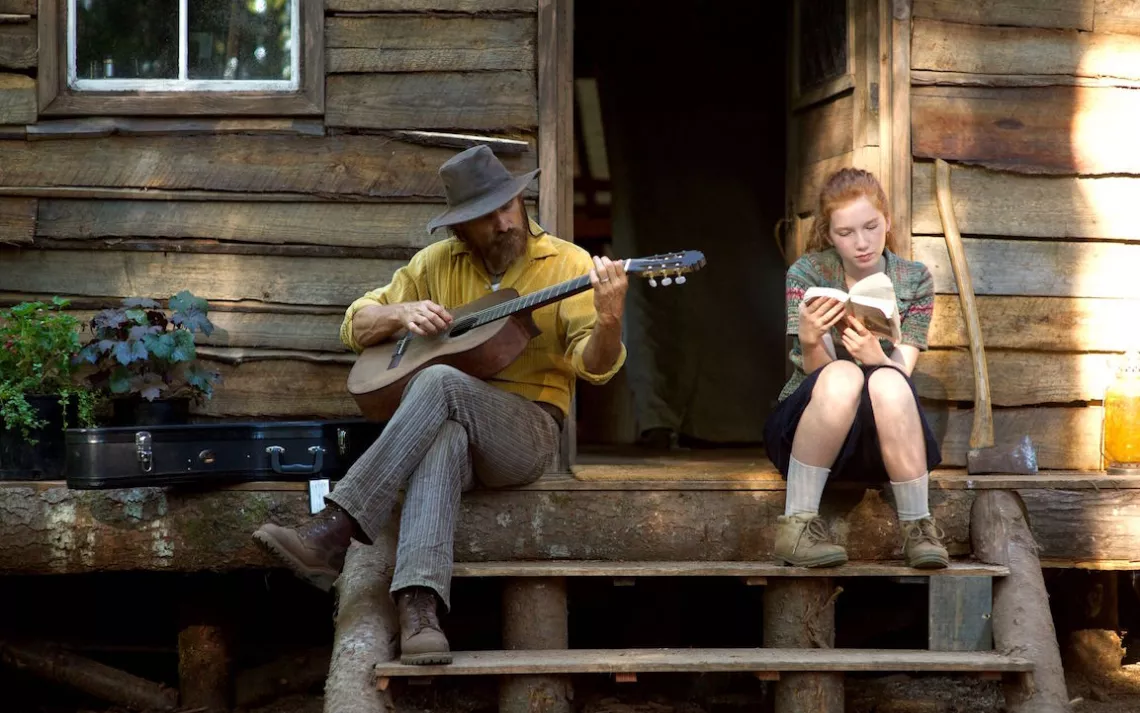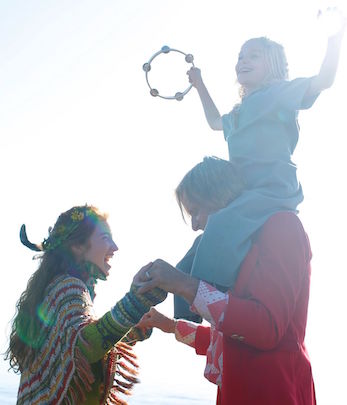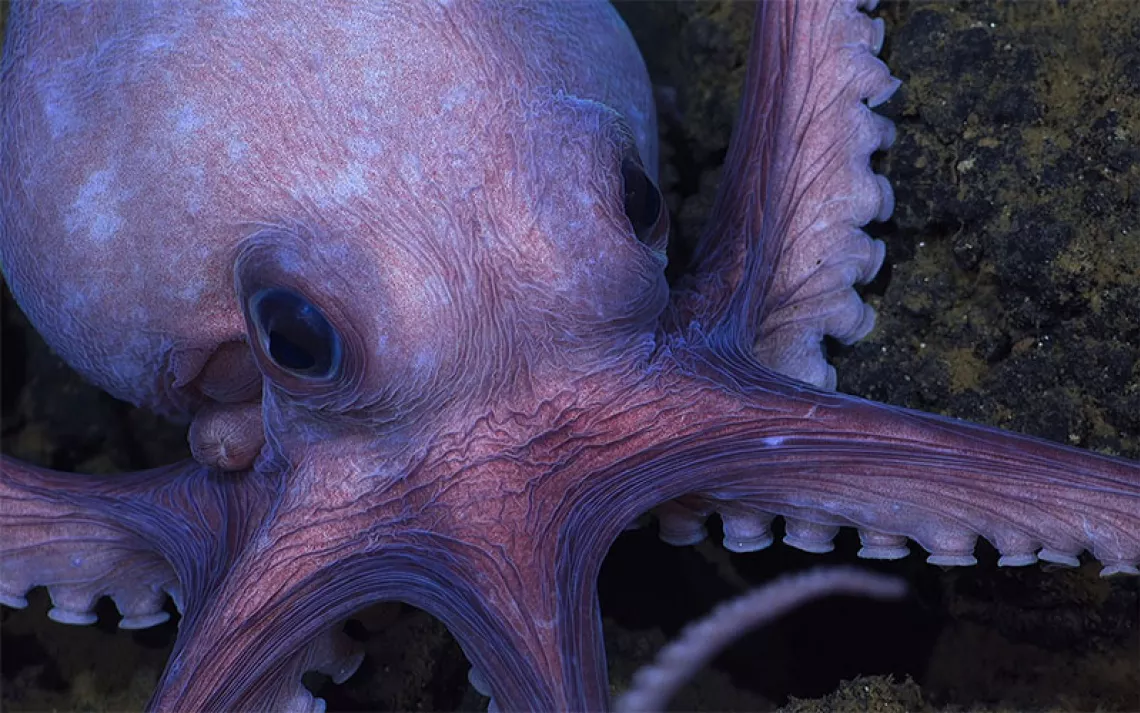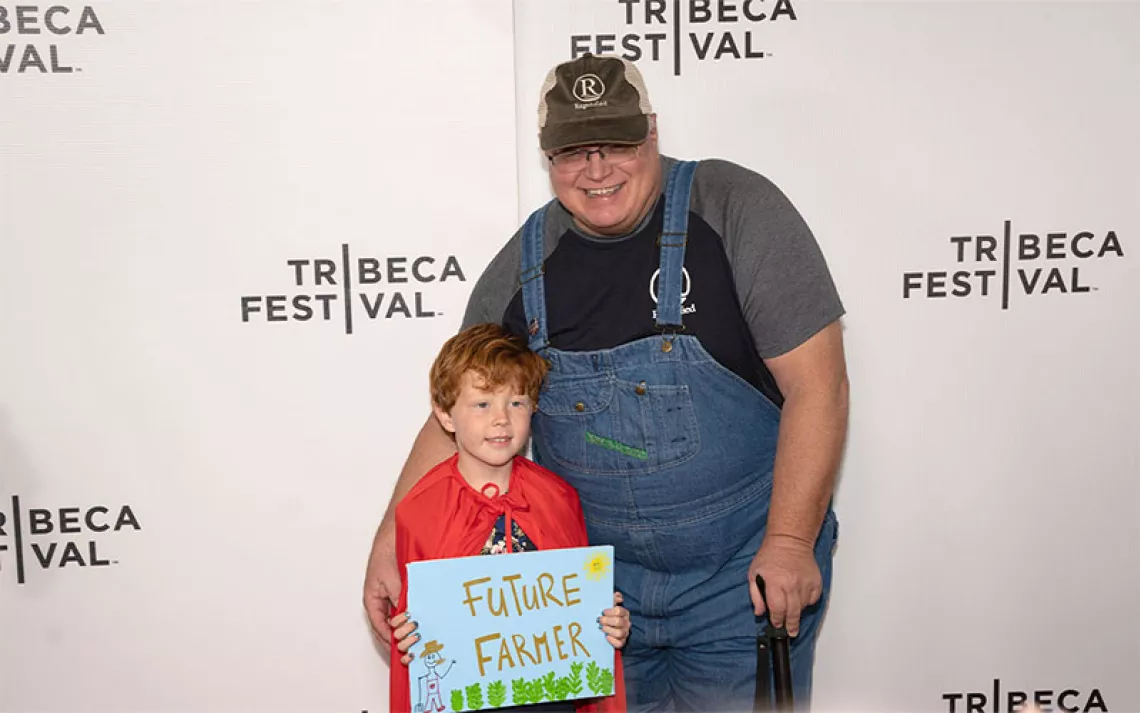Captain Fantastic Lives Off the Grid Then Hits the Skids

Photograph courtesy of Bleecker Street/Wilson Webb
In Captain Fantastic, Viggo Mortensen plays Ben Cash, an offbeat pioneer and patriarch of a 21st-century version of Swiss Family Robinson, living off-grid in the woodlands of Washington State. The opening scene evokes the American back-to-the-land archetype that stretches as far back as James Fenimore Cooper’s 1841 The Deerslayer, as one of Cash’s sons—a mud-caked, muscular, long-haired teen named Bodevan (British actor George MacKay, costar of 2014’s Pride)—emerges out of the forest primeval to kill a deer.
Cash and his six children, ranging in age from 7 to 18, are “Thoreau-backs” of a sort. They live in a Walden-like tepee/cabin compound in the wilderness. They hunt and grow their own food. The kids are, naturally, homeschooled. An obvious irony is embedded in the family name: The Cashes’ survivalist lifestyle is outside of and beyond America’s cash-driven consumerism.
The bearded Ben and his wife, Leslie (Trin Miller, glimpsed mainly in dreams), have raised their brood in this Pacific Northwest Arcadia with vigorous wilderness skills training, while educating them with books emphasizing the classics and radical anticapitalist ideology. Instead of celebrating Christmas, the Cashes have Noam Chomsky Day. But their off-the-grid living hits the skids when tragedy befalls Leslie, and the decade-long idyll crashes into cold, cruel reality. The modern-day Peter Pan and his Lost Boys (and Girls) must leave their Neverland and venture forth into the outside world—sparking the story, written and directed by Matt Ross, into action.
The Cashes embark on a road trip in a converted school bus to visit relatives, and along the way they’re slapped in the face by late-capitalist commercialism. They’re befuddled to find that money is required for food at restaurants and supermarkets, that computerized communications dominate relationships, and that virtual reality often trumps actual living. The Cashes may be more erudite and physically fit than their fellow Americans—they marvel at widespread obesity—but they have few social graces. Handsome Bodevan is hopelessly inept with the opposite sex, with whom he has had little contact beyond the sylvan glade.

Photograph courtesy of Bleecker Street/Erik Simkins
The Cashes’ collision course with contemporary society results in a predictable crash when, en route to Albuquerque, the quirky clan overnights with Ben’s more traditional sister, Harper (Kathryn Hahn of Showtime’s edgy Happyish), his brother-in-law, Dave (Steve Zahn, costar of HBO’s Treme), and their all-too-typical, video-game-addicted sons. The culture clash explodes into full-scale warfare during a church service: The Cash family, determined to carry out mom’s last wishes, confront her conservative parents, Abigail (Ann Dowd) and Jack (veteran thespian Frank Langella). The kids are forced to decide between abandoning their father and moving in with their affluent grandparents in a posh Albuquerque suburb, or returning with Ben to their noble savagery in Washington’s woods. When one of the daughters gets injured, Ben develops second thoughts about how his children have been raised. He wonders whether his late wife—who was diagnosed as mentally ill—may have disagreed with the Cashes’ unusual way of life. In a symbolic break from the past, Ben shaves and Bodevan cuts his hair.
At this point, Captain Fantastic’s plotline gets complicated—or perhaps it just goes, well, fantastical. (Warning: spoilers to come.) Do the children, raised to become “philosopher kings,” succumb to the consumer society? Or do they stow away aboard the bus and return with Ben to their rustic retreat to execute Leslie’s final wishes? Or are the final scenes—in which we see the Cashes living in a compromise state between the backwoods survivalism and modernity—all a hallucination of Ben’s imagination? For this viewer, at least, the ending was ambiguous.
However, in a subsequent interview I conducted with Mortensen (who played Aragorn in The Lord of the Rings trilogy), the actor insisted that the finale is no hallucination: “They appear and you see they return to the West Coast, together. They stow away in the bus in the place where they have storage compartments—where the Noam Chomsky poster came out of. . . . If it was a fantasy, everything would be perfect. But he’s actually not wanting to accede to their wishes; he feels he knows better and has really ruined their lives in some way and he needs to just get away from it. I think that in the heat of the moment, that was his reaction, but his kids bring Ben back around. No, that’s real.”
Mortensen went on to explain that after his character’s children rejoin him aboard their bus, Ben tries to find a middle ground between their return-to-nature experiment and peacefully coexisting in consumerist America: “What he finally does is, encouraged by the kids who say, ‘No dad, don’t give it all up,’ he finds a new balance. Which doesn’t mean that he’s compromising himself totally. It just means, OK, what does work, and how can we readjust so the kids can have a chance to interact with society, with other people?”
Captain Fantastic is a highly entertaining, thought-provoking, and humorous eco-drama with sumptuous cinematography of America’s great outdoors. (Stéphane Fontaine, winner of two César Awards (France’s Oscars) for his camerawork, is the cinematographer.) Captain Fantastic raises profound philosophical questions about parenting, education, and the wisdom of embracing an alternative lifestyle. It revisits some of the same ground previously trod by 1963’s Lord of the Flies, 1986’s The Mosquito Coast, and 2000’s The Beach. Nearly 200 years after Cooper’s Deerslayer, America is still grappling with the theme of frontiersmen caught between the wild world and an ever-encroaching civilization.
Captain Fantastic opens July 8.
Watch Viggo Mortensen discuss why he's passionate about clean energy:
 The Magazine of The Sierra Club
The Magazine of The Sierra Club



